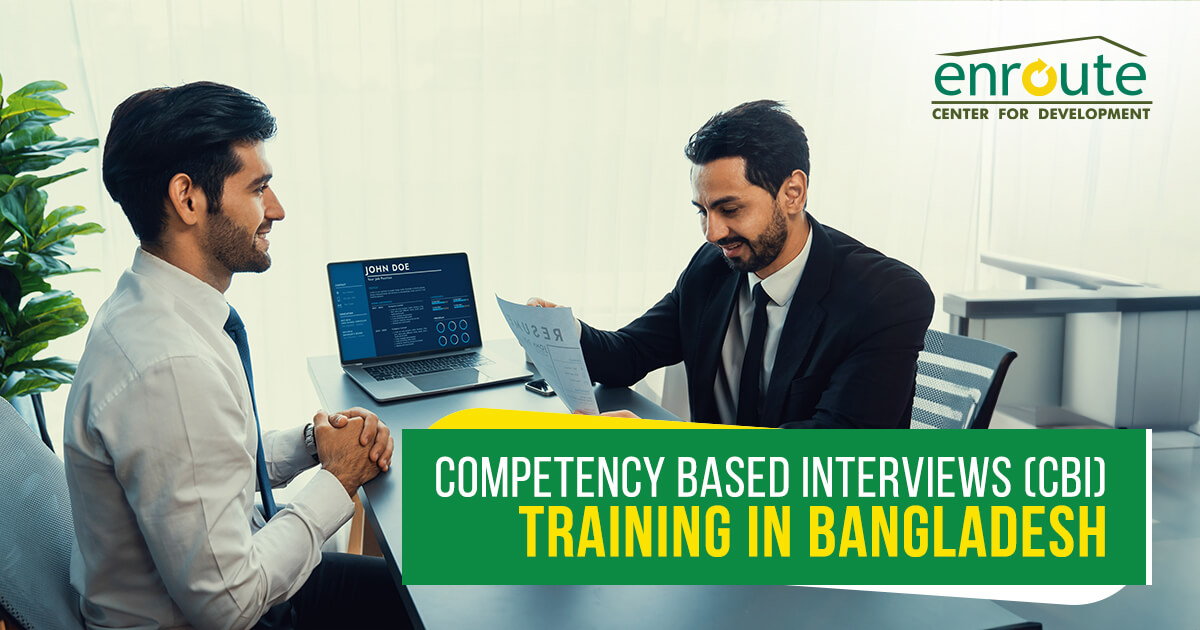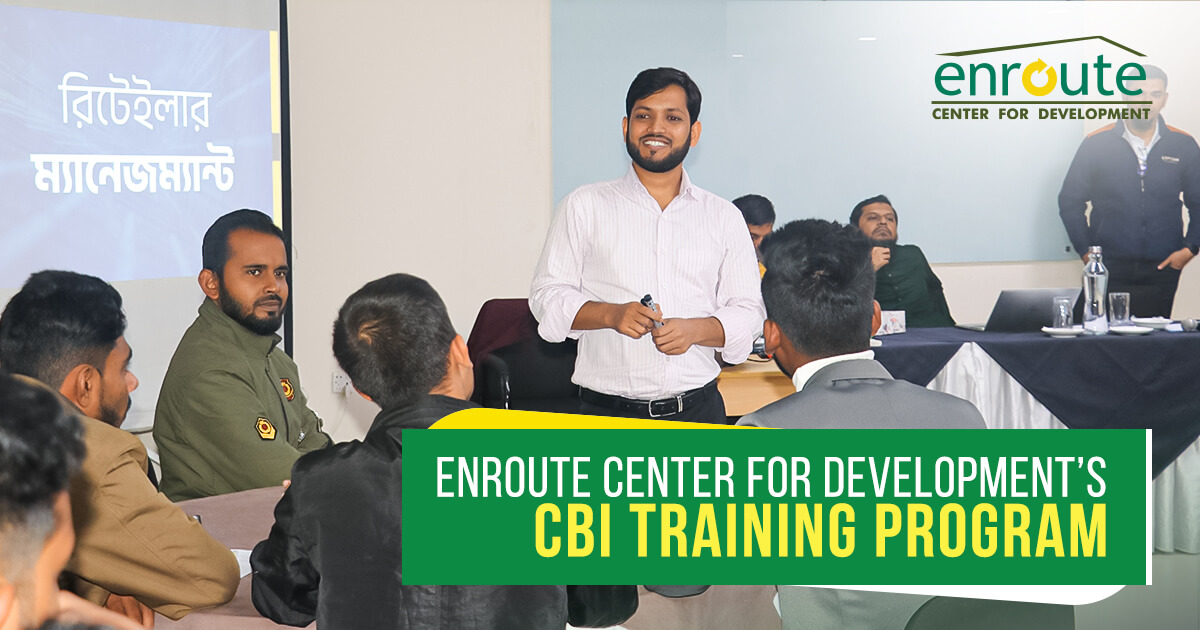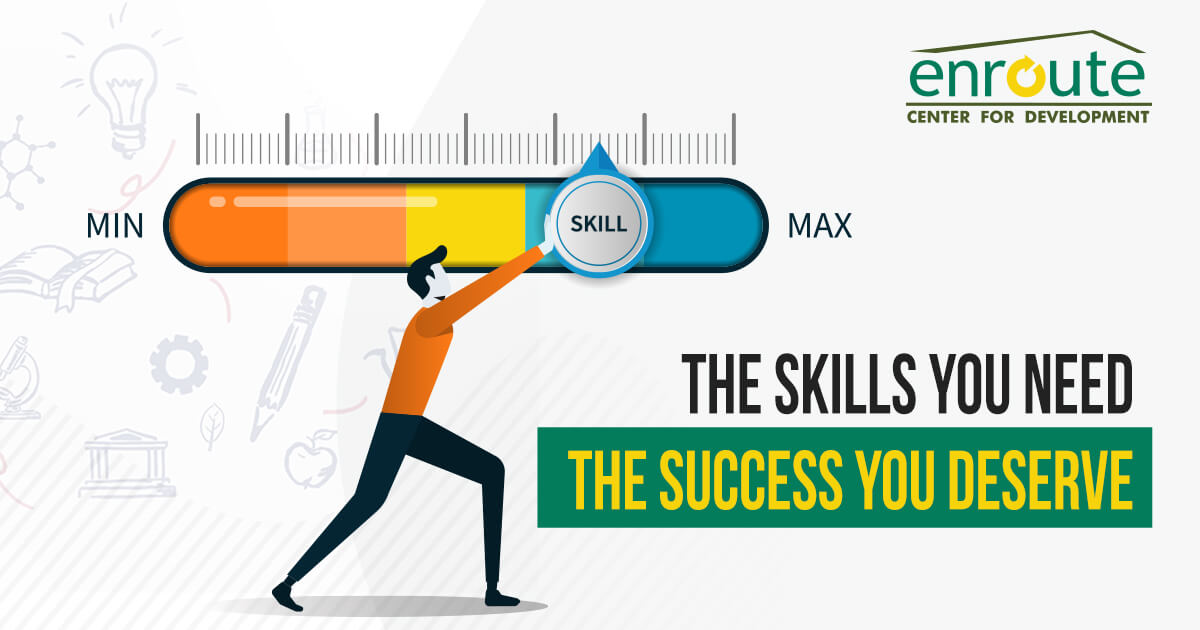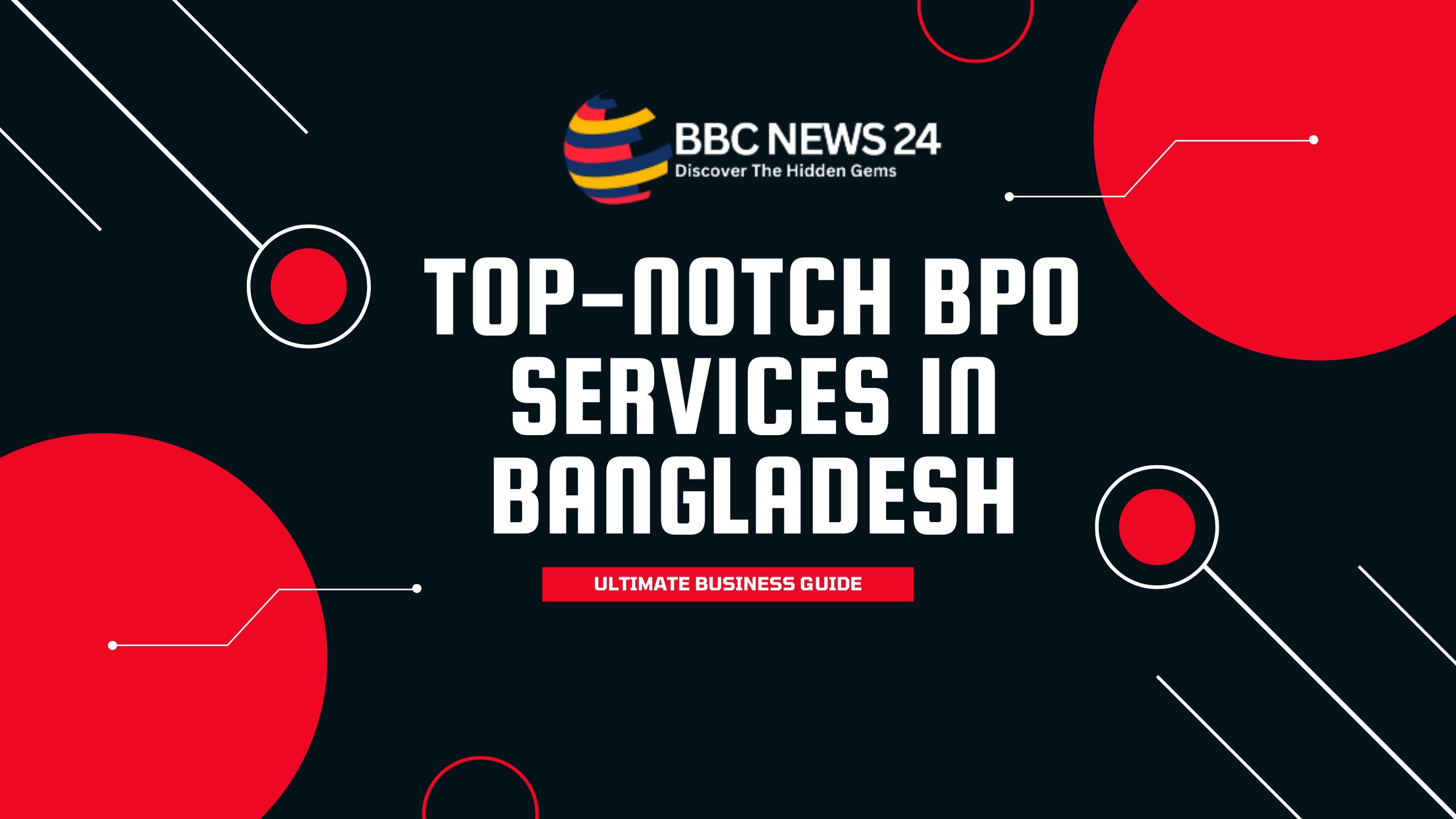Competency-based interviews (CBI) have revolutionized the recruitment landscape, offering a comprehensive and insightful approach to evaluating candidates’ potential. As organizations in Bangladesh and worldwide seek to identify top talent, CBI has emerged as a popular selection technique beyond traditional methods of assessing qualifications and experience. By focusing on specific skills, abilities, and behaviors, this method provides a more holistic understanding of a candidate’s suitability for a role.
In this article, we will delve into the intricacies of CBI and explore its significance in shaping the future of recruitment practices in Bangladesh and internationally. Whether you’re an aspiring job seeker or an HR professional looking to enhance your hiring strategies, understanding the nuances of competency-based interviews is crucial for staying ahead in today’s competitive job market.
Understanding Competency Based Interviews (CBI)
Competency-based interviews, or CBI, differ from traditional interviews, focusing on specific behaviors and skills relevant to the job. In a competency-based interview, the interviewer uses a competency framework, a set of behavioral indicators, to structure their questions.
The aim is to assess a candidate’s past behavior, experiences, and skills to predict future job performance. This method ensures that all candidates are assessed fairly and consistently, allowing for better comparison and selection of candidates for the role.
The Concept of Competency-Based Interviews
The concept of competency-based interviews revolves around using competency frameworks to evaluate candidates. A competency framework is a set of skills, behaviors, and attributes required for a specific role or job. During the interview, the interviewer explores the candidate’s past behavior, experiences, and star method.
This method aims to identify whether a candidate possesses the necessary competencies for the job. By using competency frameworks, employers can ensure that all candidates are assessed fairly and consistently based on the specific skills and attributes required for the role.
Importance of Competency Based Interviews in Recruitment
Competency-based interviews play a vital role in the recruitment process. They are considered one of the best selection techniques available for evaluating candidates. By focusing on specific competencies, such as soft skills, work experience, and emotional intelligence, employers can identify candidates with the necessary skills and qualities for the job.
This method minimizes biases and subjective judgments, providing a fair and objective evaluation of candidates. Organizations in Bangladesh and internationally extensively use competency-based interviews, as they provide accurate and reliable data for making informed recruitment decisions.
Core Principles of Competency Based Interviews
Competency-based interviews evaluate candidates based on behavior, using situation-specific questions and standardized evaluations. This ensures a fair and consistent selection process.
These interviews assess past behavior to predict future performance and test the application of skills in real-life scenarios. They also remove biases from the selection process using the same criteria for all candidates.
Overall, competency-based interviews evaluate suitability for a job based on competencies, not just qualifications or experience.
Principle 1: Behavior-Based Evaluation
Behavior-based evaluation is the foundation of competency-based interviews. Interviewers focus on gathering evidence of a candidate’s past behavior, emphasizing soft skills, emotional intelligence, and work experience.
Behavioral questions are designed to elicit examples of how candidates have demonstrated these skills in the past. By evaluating a candidate’s behavioral responses, interviewers can gauge their potential for success.
Principle 2: Situation Specific Questions
Situation-specific questions are an integral part of competency-based interviews. These questions aim to understand how candidates have handled specific work scenarios in the past. Using the star method, interviewers ask candidates to provide specific examples of situations they have encountered, the tasks they undertook, their actions, and the results they achieved. These scenarios provide valuable insights into a candidate’s problem-solving skills, work experience, and ability to work under pressure.
Principle 3: Standardized Evaluations
Standardized evaluations are an essential component of competency-based interviews. Employers ensure fair and consistent assessments of all candidates by utilizing a standardized competency framework. This approach eliminates variations in assessment methods, ensuring all candidates are evaluated using the same criteria.
Standardized evaluations enable employers to compare candidates, leading to better recruitment decisions accurately. Using competency-based questions aligned with the competency framework provides reliable and objective data for evaluating candidates’ skills and competencies.
How to Prepare for a Competency Based Interview
Competency-based interviews require candidates to prepare thoroughly and demonstrate their relevant skills effectively. To excel in such an interview, candidates should begin by researching the company and the role they are applying for. Understanding the job requirements and the organization’s values can help them identify which competencies to highlight during the interview.
It is also essential to practice answering common competency-based questions with specific examples from their work experience. This will help them articulate their skills more effectively during the interview. Finally, candidates should be confident, clear, and concise when answering questions, showcasing their relevant competencies in a way that aligns with the job requirements.
Identifying Key Competencies for the Role
The first step in preparing for a competency-based interview is identifying the key competencies required for the role. Analyze the job description and research the organization to determine the skills, experience, and attributes essential for success.
Competencies may vary depending on the position, but for administrative professionals, organizational skills, communication, problem-solving, and customer service are often precious. By identifying these key competencies, candidates can tailor their preparation and provide relevant examples during the interview.
Preparing Relevant Examples and Scenarios
Once the key competencies have been identified, candidates should prepare relevant examples and scenarios demonstrating their skills and experience. Consider the specific competencies required for the role and think about situations where you have successfully demonstrated those skills. Develop detailed, concise, and specific examples highlighting your customer service skills, problem-solving abilities, and work experience. Use the star method (Situation, Task, Action, Result) to structure your responses, ensuring that you clearly and concisely explain the situation, the task or challenge you faced, the action you took, and the positive result or outcome you achieved.
- Example 1: Provide an example where you delivered exceptional customer service in a challenging situation.
- Example 2: Describe when you successfully resolved a problem or conflict at work.
- Example 3: Share an experience where you demonstrated strong communication skills while working within a team.
Practice and Self-Evaluation
To improve interviewing skills and boost confidence, candidates should practice competency-based interviews before the interview. Practice responding to behavioral questions, using the star method, and providing clear and concise examples. Conduct mock interviews with a friend or family member to simulate the interview environment and receive feedback.
Self-evaluation is also essential, as it helps identify areas for improvement. Reflect on your responses, assess your soft skills, and enhance your communication and emotional intelligence skills. Consistent practice and self-evaluation can significantly enhance your competency-based interview performance.
Techniques for Conducting Competency Based Interviews
Competency-based interviews require interviewers to adopt techniques that ensure fairness and consistency in the hiring process. These techniques include creating a standardized set of questions that focus on the candidate’s skills and experiences relevant to the position, asking follow-up questions to gather more information, using behavioral prompts to elicit specific examples of the candidate’s competencies, and rating responses based on predetermined criteria.
Interviewers can use these techniques to reduce bias and make more informed hiring decisions based on objective evidence of a candidate’s abilities. Additionally, providing feedback to candidates can help them understand where they excelled and where they need improvement in their competencies.
Developing Relevant Questions
An interviewer must develop relevant questions that align with the competency framework. These questions reflect the unique work environment and culture of the organization. Interviewers can effectively evaluate candidates’ skills and abilities by tailoring questions to the specific competencies required for the role.
It is important to ask open-ended questions that allow candidates to provide detailed responses and follow up with probing questions to gather more information about their experience. Customizing questions based on the role ensures relevance and accuracy in the assessment process.
Evaluating Responses Effectively
When evaluating responses in a competency-based interview, it is essential to assess candidates objectively, focusing on specific behaviors and skills related to emotional intelligence and other competencies. Use the competency framework to evaluate responses consistently, considering how effectively candidates demonstrate the required skills and abilities. Analyze responses for evidence of emotional intelligence, problem-solving, teamwork, and communication skills.
Look for patterns and cues in their language, non-verbal communication, and overall performance during the interview. Applying selection techniques, such as evaluating responses against defined competency levels, helps ensure a fair and accurate assessment of candidates’ suitability for the role.
Giving Constructive Feedback
Providing constructive feedback to candidates after a competency-based interview is crucial for their personal and professional development. Feedback should highlight areas for improvement and offer guidance on how candidates can enhance their interviewing skills. This feedback fosters a positive candidate experience, regardless of the outcome, and helps candidates understand how to improve their performance in future interviews.
Tailoring feedback to individual responses supports continuous development, encouraging candidates to work on their strengths and weaknesses. Organizations can help candidates realize their potential and improve their interview skills by offering coaching and guidance.
Advantages of Competency-Based Interviews
Competency-based interviews are gaining popularity amongst employers as they offer multiple benefits for both the recruiter and the candidate. It allows the interviewer to evaluate job applicants based on their skills, knowledge, and experience rather than just their qualifications and academic background. This approach provides a more comprehensive understanding of the candidate’s potential and suitability for the role.
Additionally, competency-based interviews can help recruiters identify candidates with the specific competencies required for a particular job. This ensures that the selected candidate is better equipped to handle job responsibilities and contribute positively to the organization’s growth.
From a candidate’s perspective, competency-based interviews allow them to showcase their skills and abilities in a structured format. It also enables them to understand the job role better and align their responses accordingly.
Competency-based interviews are an effective recruitment tool that can benefit employers and candidates by ensuring that only those who meet the required competencies are selected for a particular role.
For Employers
Competency-based interviews provide employers with valuable insights into candidates’ skills, abilities, and potential job performance. By focusing on specific competencies, recruitment professionals can identify candidates who best fit the organization, ensuring a higher chance of success in the role. Competency-based interviews also minimize biases and subjective judgments, resulting in fairer selection techniques.
Organizations that utilize competency-based interviews experience improved recruitment outcomes, leading to better selection and recruitment processes. This method enables employers to make informed hiring decisions that align with their organizational goals and requirements, making it a crucial aspect of an effective organization.
For Candidates
Competency-based interviews benefit candidates by allowing them to showcase their skills, experience, and soft skills effectively. By emphasizing specific competencies, such as soft skills, work experience, and emotional intelligence, candidates can demonstrate their suitability for the role. Competency-based interviews provide a fair and objective assessment, minimizing biases and subjective judgments.
Candidates who excel in competency-based interviews are more likely to be selected, leading to improved career opportunities. This interviewing method provides candidates with valuable feedback and coaching, facilitating their personal and professional development.
Limitations and Challenges of Competency-Based Interviews
Competency-based interviews are an effective tool for selecting candidates, but like any selection technique, they have limitations and challenges that must be addressed to achieve optimal results. One limitation is that competency-based interviews can be time-consuming and require extensive preparation and coordination between interviewers.
Moreover, it can be challenging to accurately assess a candidate’s competencies based on their responses alone, as they may only sometimes provide concrete examples or may exaggerate their skills. In addition, the effectiveness of competency-based interviews may depend on the interviewer’s ability to conduct the interview objectively and ask relevant questions.
To overcome these challenges, training interviewers to conduct competency-based interviews effectively and consistently is essential. Additionally, using assessment tools such as psychometric tests can provide supplementary information on a candidate’s abilities and potential fit for the role.
Limitations for Employers
One limitation of competency-based interviews is the necessity for a clear understanding of competency requirements. This ensures accurate assessment and selection of candidates. Implementing competency-based interviews effectively requires training, experience, and standardization of the interview process. Standardization is essential to ensure consistency in evaluation methods and avoid biases.
Organizations must invest time and resources in developing competency framework guidelines and training their interviewers to conduct competency-based interviews successfully. This ensures that the selection techniques accurately reflect the role’s requirements and lead to reliable recruitment decisions.
Challenges for Candidates
Candidates may face challenges when participating in competency-based interviews. One challenge is effectively showcasing soft skills, such as emotional intelligence, during the interview. Soft skills can be challenging to assess and demonstrate, making it essential for candidates to prepare relevant examples and scenarios highlighting their abilities. Another challenge candidates may encounter is needing more work experience, particularly for entry-level positions.
In such cases, candidates should focus on transferable skills and experiences that align with the competencies required for the role. Demonstrating emotional intelligence and customer service skills can also pose challenges, as candidates need to articulate their experiences and behaviors in these areas effectively.
Overcoming Challenges in Competency-Based Interviews
Competency-based interviews can be challenging for both interviewers and candidates, but some strategies can help overcome these difficulties. For interviewers, it is essential to clearly understand the competencies required for the role and structure questions around them. They should also allow candidates enough time to answer the questions and avoid leading them toward a preferred response.
Candidates can prepare by researching the organization and job requirements and identifying examples of past experiences demonstrating their relevant competencies. They should also practice telling their stories in a structured format using the STAR (Situation, Task, Action, Result) method. Additionally, listening carefully to the interviewer’s questions and clarifying doubts before answering is essential.
Overall, competency-based interviews require preparation and attention to detail from both parties. With the right strategies in place, they can effectively assess a candidate’s suitability for a role based on their skills and experiences.
Training and Development for Interviewers
Providing comprehensive training and development opportunities for interviewers is crucial for conducting fair and effective competency-based interviews. Interviewers need training in assessing soft skills and emotional intelligence and using the competency framework effectively. Developing interviewer competency framework guidelines ensures standardization and consistency in evaluation methods.
Continuous coaching and consultancy can enhance interviewer skills and techniques, enabling them to conduct more accurate and unbiased competency-based interviews. Training and facilitation in emotional intelligence for interviewers can also lead to better recruitment decisions, as they will have a deeper understanding of the qualities required for success in the role.
Candidate Preparation Strategies
Candidates can overcome challenges in competency-based interviews through thorough preparation and specific strategies. Learning competency-based interviewing techniques is vital to understanding the interview process and what employers seek. Candidates should familiarize themselves with the most prominent eLearning trends, consultancy, and coaching to gain insights and enhance their competency-based interviewing skills.
Understanding competency frameworks specific to the role before the interview can boost candidates’ confidence and improve their performance. Practicing mock interviews, seeking feedback, and focusing on soft skills development are essential preparation strategies for competency-based interviewing success.
Enroute Center for Development’s CBI Training Program
Enroute Center for Development provides a comprehensive CBI training program focusing on improving interviewing skills and competency-based interviewing techniques. The program is designed to equip participants with practical strategies for identifying, evaluating, and selecting the best candidates.
It covers various topics such as communication skills, listening skills, probing techniques, and behavioral questioning. By mastering these skills, participants can increase their chances of hiring the right person for the job and positively impact the organization’s bottom line.
Benefits of Enroute’s CBI Training
Enroute’s CBI training program provides participants practical skills and techniques to improve their interviewing abilities. The program offers a deep understanding of competency framework guidelines, enabling interviewers to conduct more effective competency-based interviews. Participants will learn the STAR method, which helps structure competency-based responses, showcasing their skills and experiences.
Acquiring emotional intelligence skills is another key benefit of enrolling in Enroute’s CBI training program. The training program is facilitated by experienced professionals who have conducted competency-based interviews, providing valuable insights and guidance. Additionally, the program offers a certificate upon completion, adding value to participants’ professional development.
Who Should Attend Enroute’s CBI Training?
Enroute’s CBI training program is suitable for a wide range of professionals, including HR professionals, recruitment specialists, administrative professionals, CEOs, and other senior professionals involved in recruitment. Candidates looking to improve their interviewing skills, selection techniques, and recruitment knowledge can also benefit from the program.
Professionals in consultancy, eLearning, logistics, and various organizations can enhance their competency-based interviewing skills by enrolling in Enroute’s CBI training program. Individuals aiming to improve their interviewing skills, selection techniques, and recruitment knowledge should consider attending this comprehensive CBI training.
How can Bangladeshi companies benefit from further training in Competency-Based Interviews?
Advanced competency-based interviewing (CBI) has emerged as a valuable tool for improving recruitment processes in Bangladesh. By investing in CBI, companies can improve their HR capabilities and develop better selection techniques, leading to improved recruitment outcomes. With enhanced interviewer competencies, organizations can ensure quality recruitment and build a strong talent pool.
Further training in CBI can help HR professionals better understand the methodology and its application, thus improving the recruitment process’s overall effectiveness. Companies that adopt advanced CBI practices can stay ahead of the competition by attracting and hiring the best talent available in the market, especially with the help of training sessions on Fridays.
Frequently Asked Questions
What exactly is Competency-Based Interview (CBI) Training?
Competency-Based Interview (CBI) Training is a method of evaluating a candidate’s skills and abilities. It focuses on identifying specific competencies required for a job and assessing if the candidate possesses them. CBI questions are behavioral, requiring examples of past competency demonstrations. This training helps employers make better hiring decisions.
Who should attend the CBI Training at Enroute Center for Development?
Anyone looking to enhance their interviewing skills can benefit from the CBI training at Enroute Center for Development. HR professionals, recruiters, managers conducting interviews regularly, and job seekers preparing for competency-based interviews will find this training valuable. It is suitable for individuals and organizations interested in adopting a competency-based approach to hiring.
How long is the CBI Training program, and what is its structure?
The duration of the CBI Training program can vary depending on the provider and depth of the training. Typically, it can range from a half-day to multiple days. The structure usually includes an introduction to CBI, practical exercises, case studies, and guidance on preparing for and conducting competency-based interviews.
Can I attend the CBI Training if I am currently employed?
Yes, you can attend CBI training while being employed. Many programs offer flexible scheduling options for working professionals. Enhancing your skills through this training can increase your career advancement opportunities. Consult with your employer to ensure no conflicts with your work responsibilities.
How does Enroute Center for Development’s CBI Training differ from other interview preparation courses?
Enroute Center for Development’s CBI Training stands out from other interview preparation courses. It focuses specifically on competency-based interviews, offering mock interviews and personalized feedback for improvement. The trainers are experienced professionals who have conducted such interviews themselves. The course also teaches candidates how to identify and articulate their competencies during the interview effectively.
Conclusion
Competency-based interviews (CBI) have become increasingly popular in recruitment as they provide valuable insights into a candidate’s skills, abilities, and potential for success. By focusing on specific competencies, CBIs help employers make informed decisions and identify the best fit for their organization. Understanding and preparing for CBIs can significantly increase candidates’ chances of securing a job offer.
Enroute Center for Development offers comprehensive CBI training programs to equip individuals with the knowledge and skills needed to excel in CBIs. Whether you are an employer looking to enhance your interviewing techniques or a candidate aiming to stand out, Enroute’s CBI training can provide you with the tools and strategies for success. Take advantage of this opportunity to gain a competitive edge in the job market. Sign up for Enroute’s CBI training today!

















